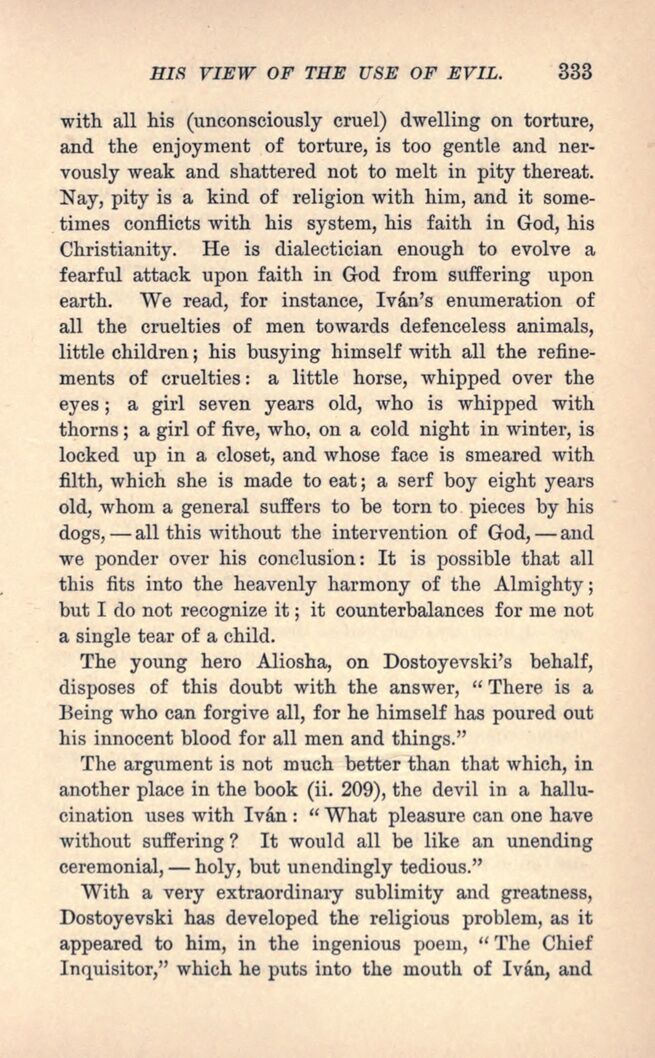
Full resolution (JPEG) - On this page / på denna sida - Impressions of Russian Literature - VI

<< prev. page << föreg. sida << >> nästa sida >> next page >>
Below is the raw OCR text
from the above scanned image.
Do you see an error? Proofread the page now!
Här nedan syns maskintolkade texten från faksimilbilden ovan.
Ser du något fel? Korrekturläs sidan nu!
This page has been proofread at least once.
(diff)
(history)
Denna sida har korrekturlästs minst en gång.
(skillnad)
(historik)
with all his (unconsciously cruel) dwelling on torture,
and the enjoyment of torture, is too gentle and
nervously weak and shattered not to melt in pity thereat.
Nay, pity is a kind of religion with him, and it
sometimes conflicts with his system, his faith in God, his
Christianity. He is dialectician enough to evolve a
fearful attack upon faith in God from suffering upon
earth. We read, for instance, Iván’s enumeration of
all the cruelties of men towards defenceless animals,
little children; his busying himself with all the
refinements of cruelties: a little horse, whipped over the
eyes; a girl seven years old, who is whipped with
thorns; a girl of five, who, on a cold night in winter, is
locked up in a closet, and whose face is smeared with
filth, which she is made to eat; a serf boy eight years
old, whom a general suffers to be torn to pieces by his
dogs, — all this without the intervention of God, — and
we ponder over his conclusion: It is possible that all
this fits into the heavenly harmony of the Almighty;
but I do not recognize it; it counterbalances for me not
a single tear of a child.
The young hero Aliosha, on Dostoyevski’s behalf,
disposes of this doubt with the answer, “There is a
Being who can forgive all, for he himself has poured out
his innocent blood for all men and things.”
The argument is not much better than that which, in
another place in the book (ii. 209), the devil in a
hallucination uses with Iván: “What pleasure can one have
without suffering? It would all be like an unending
ceremonial, — holy, but unendingly tedious.”
With a very extraordinaiy sublimity and greatness,
Dostoyevski has developed the religious problem, as it
appeared to him, in the ingenious poem, “The Chief
Inquisitor,” which he puts into the mouth of Iván, and
<< prev. page << föreg. sida << >> nästa sida >> next page >>